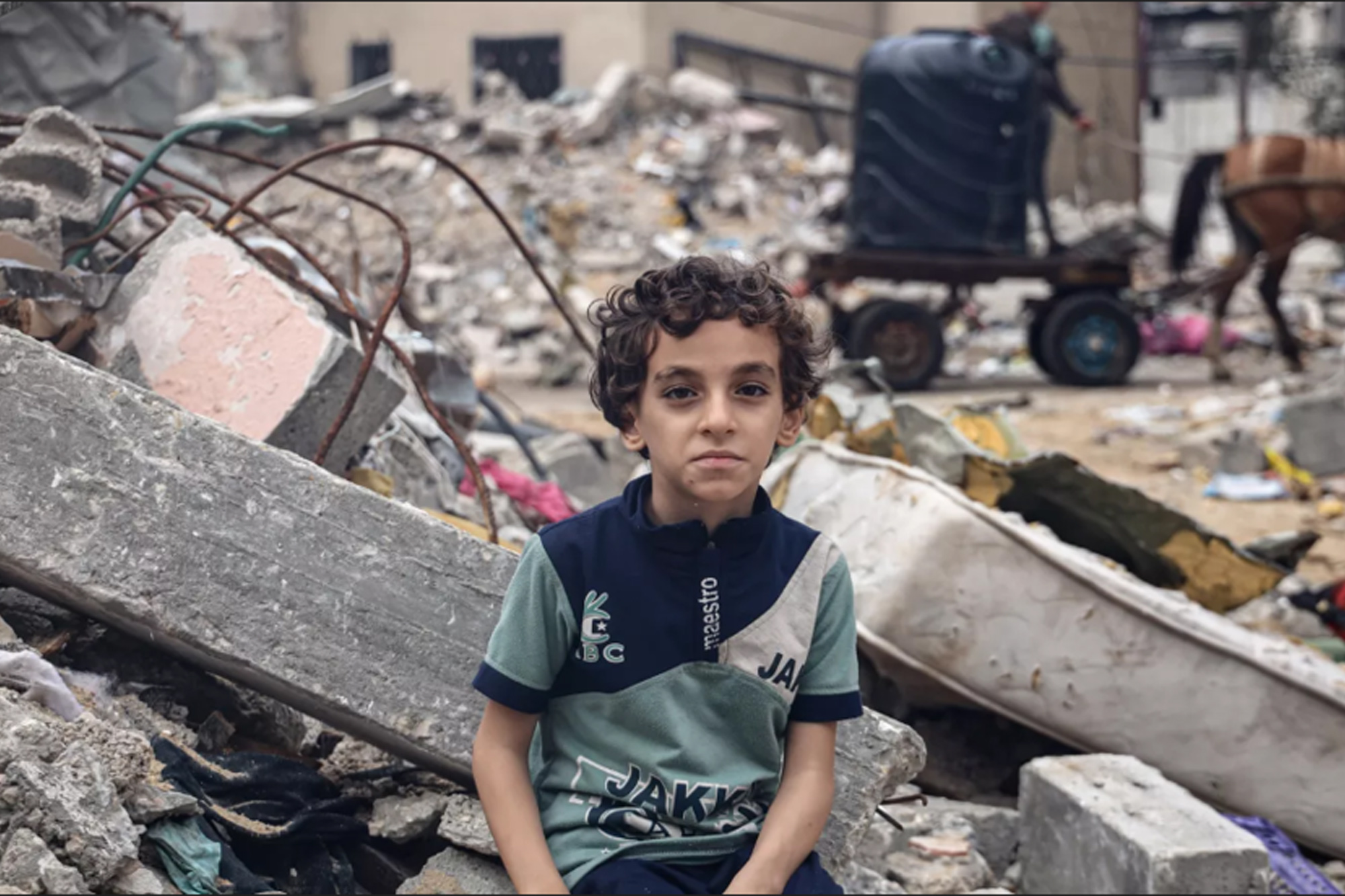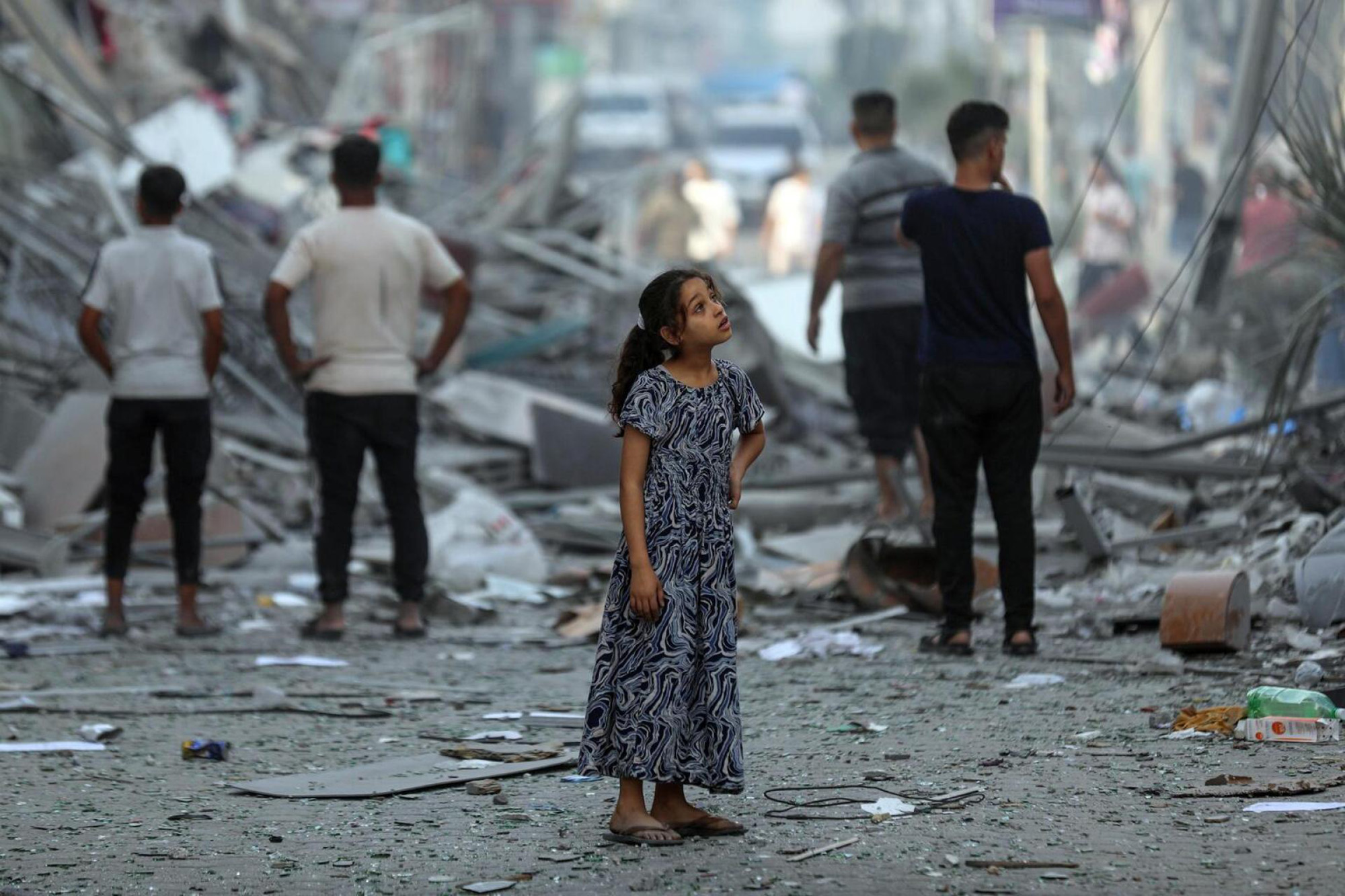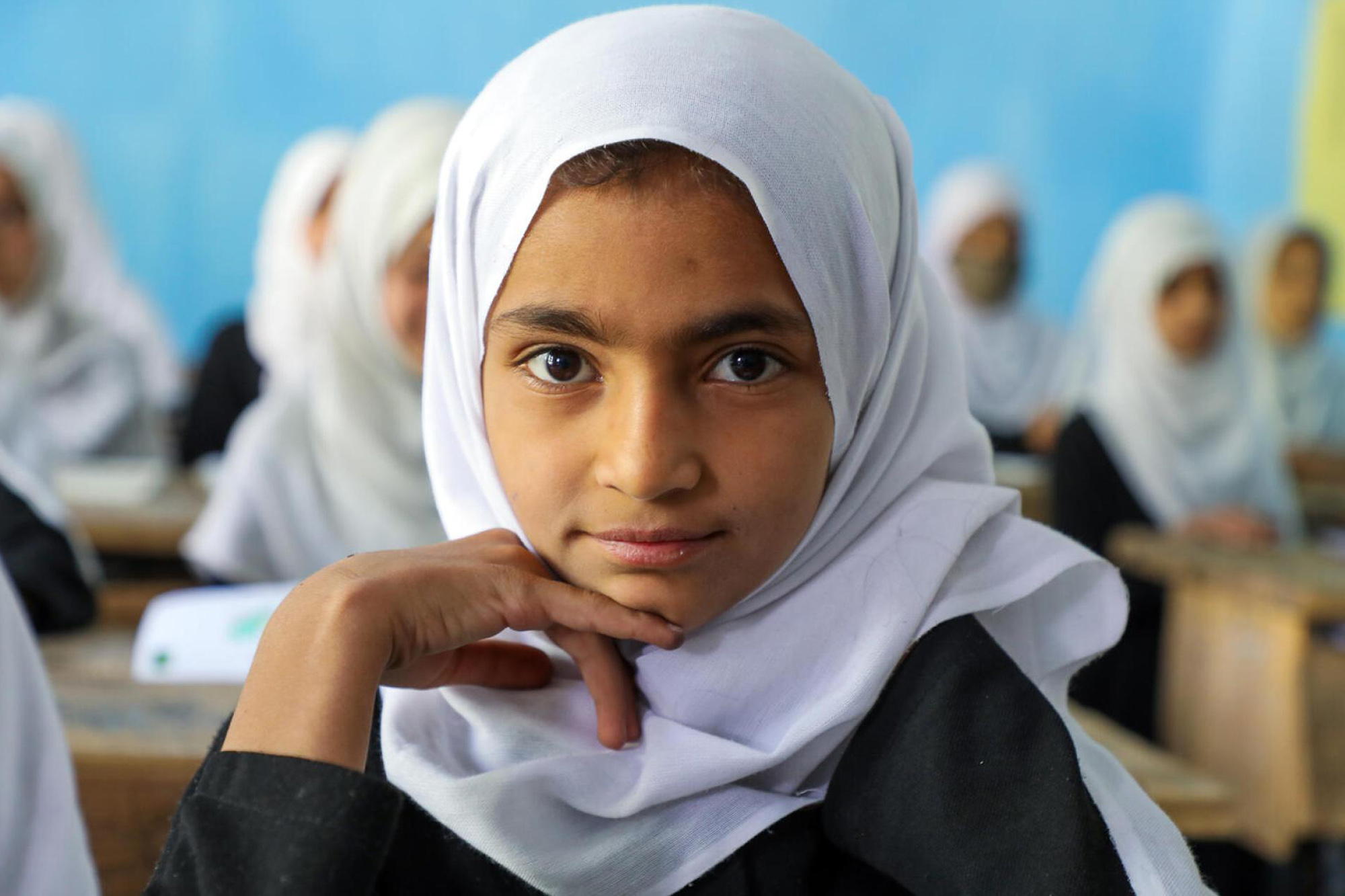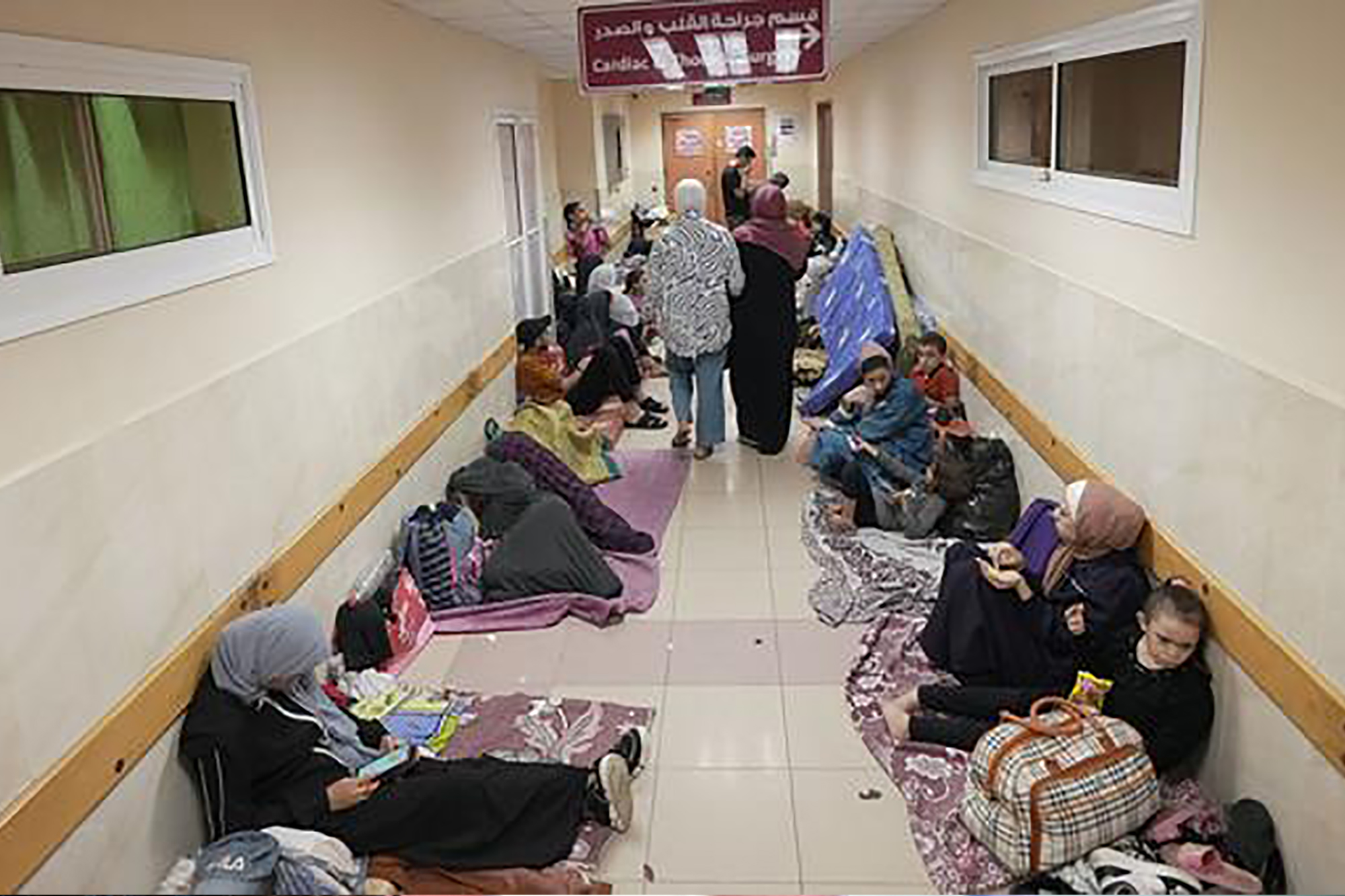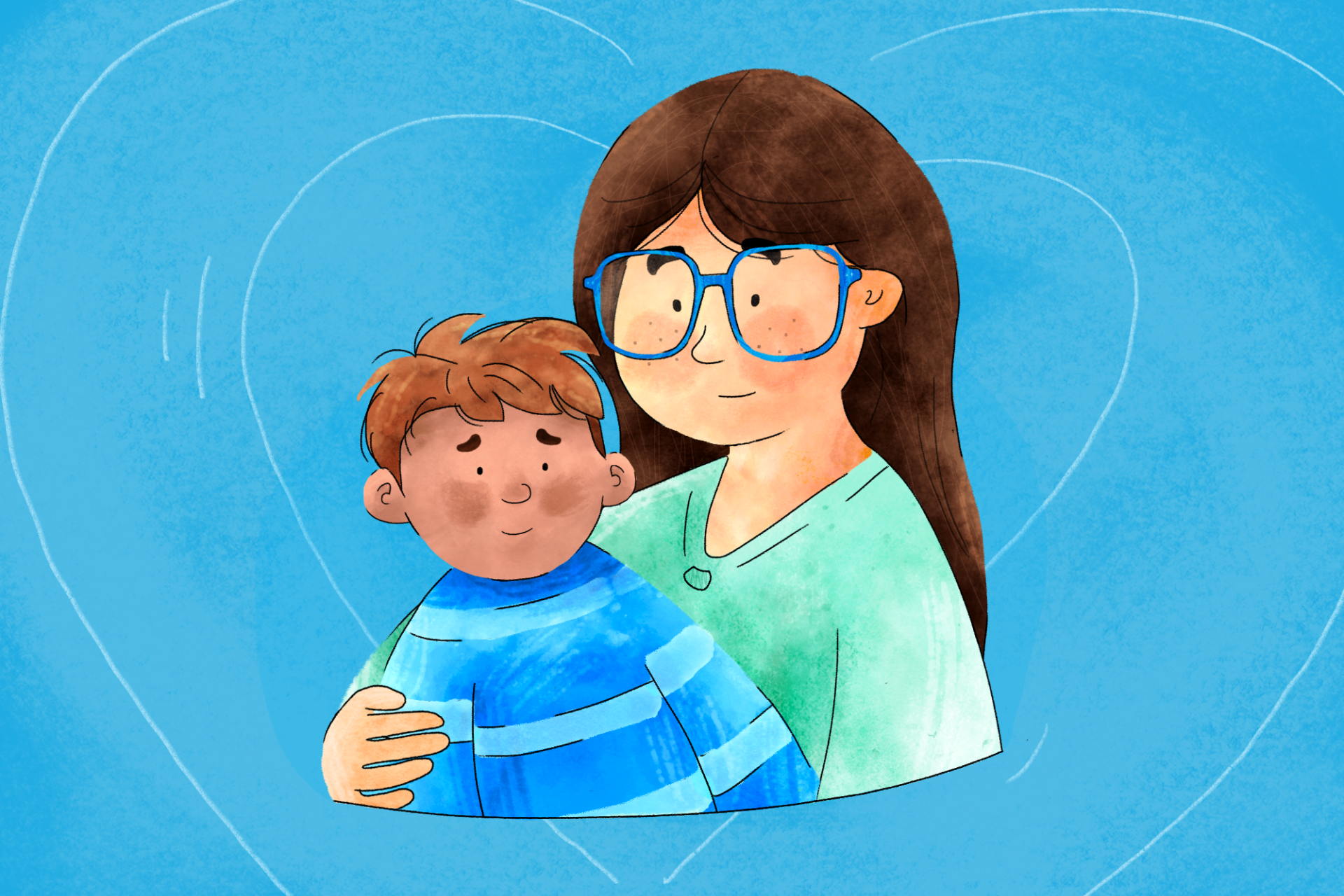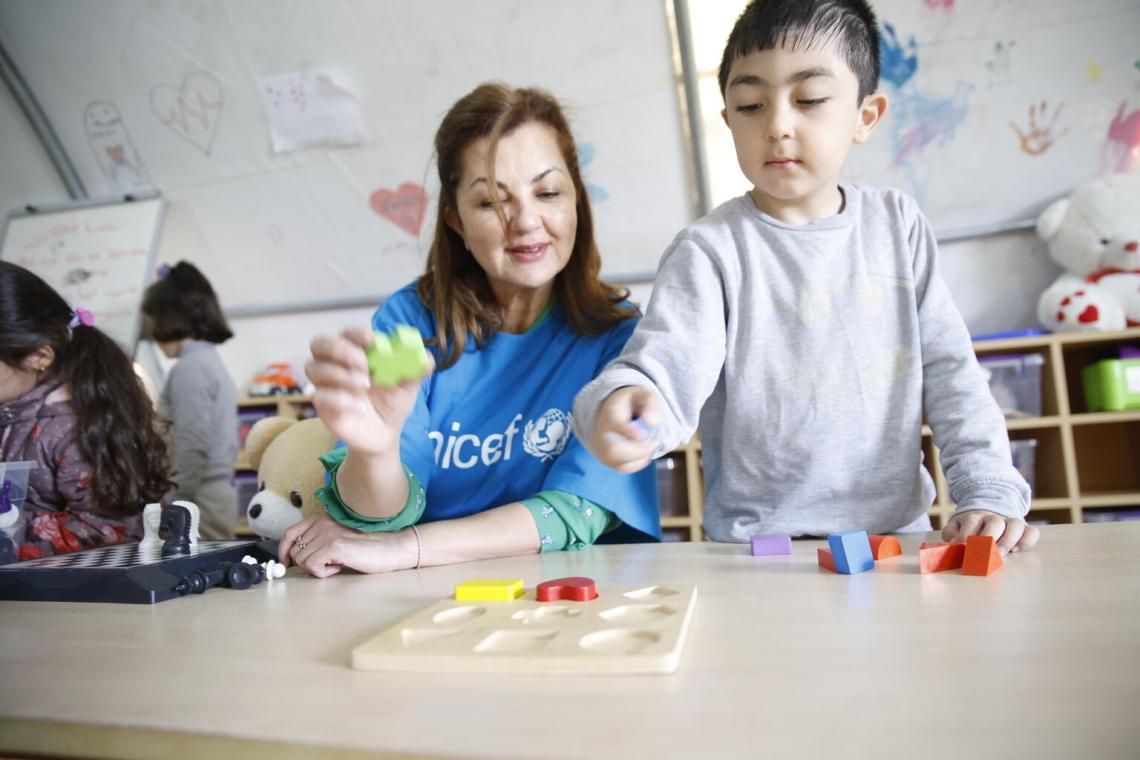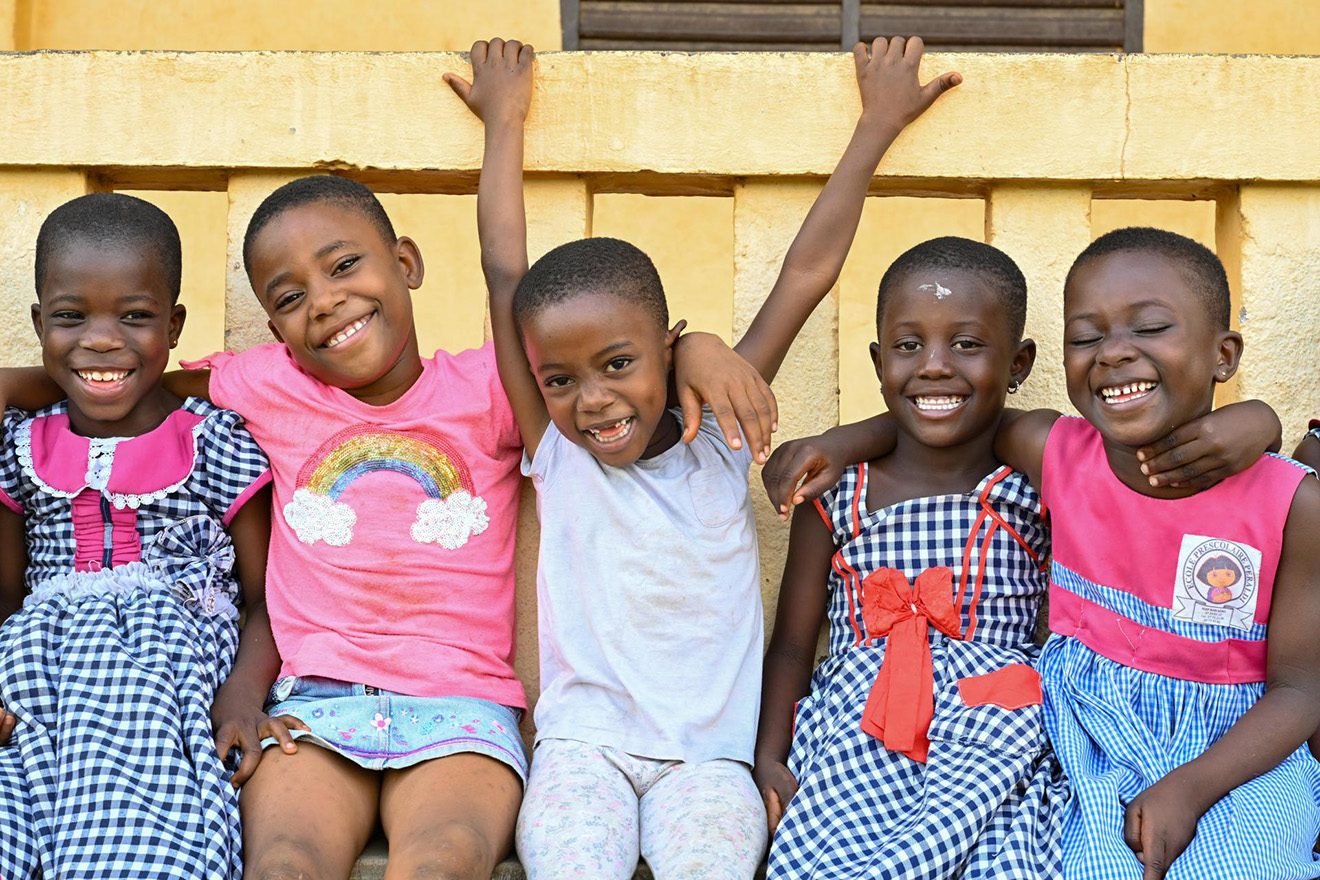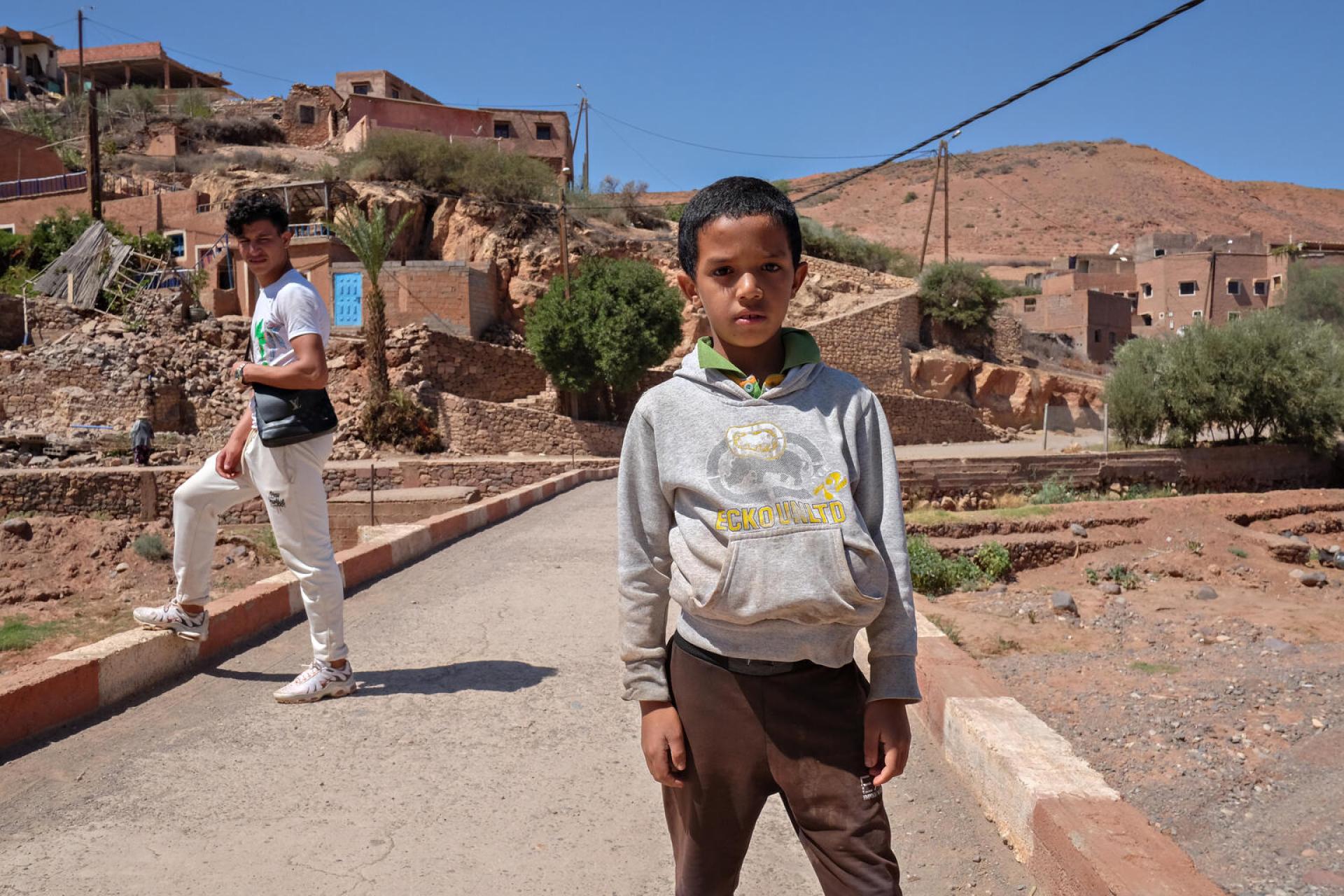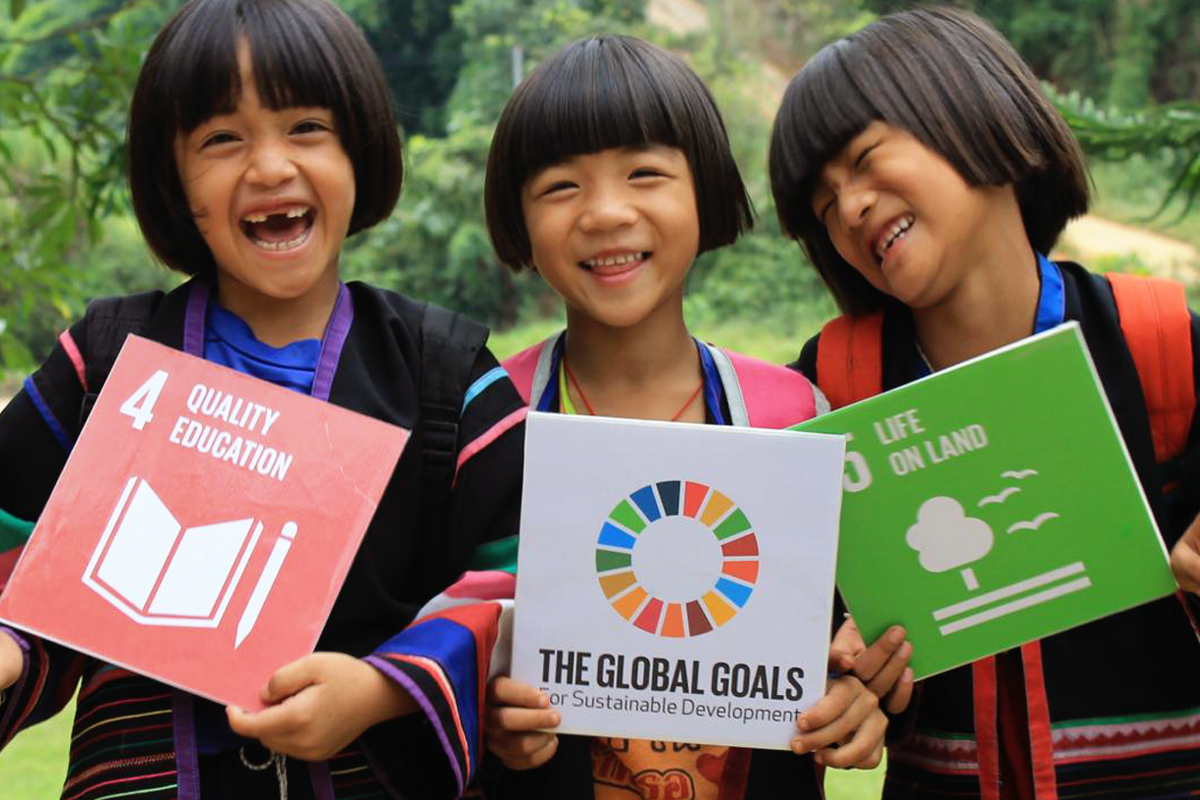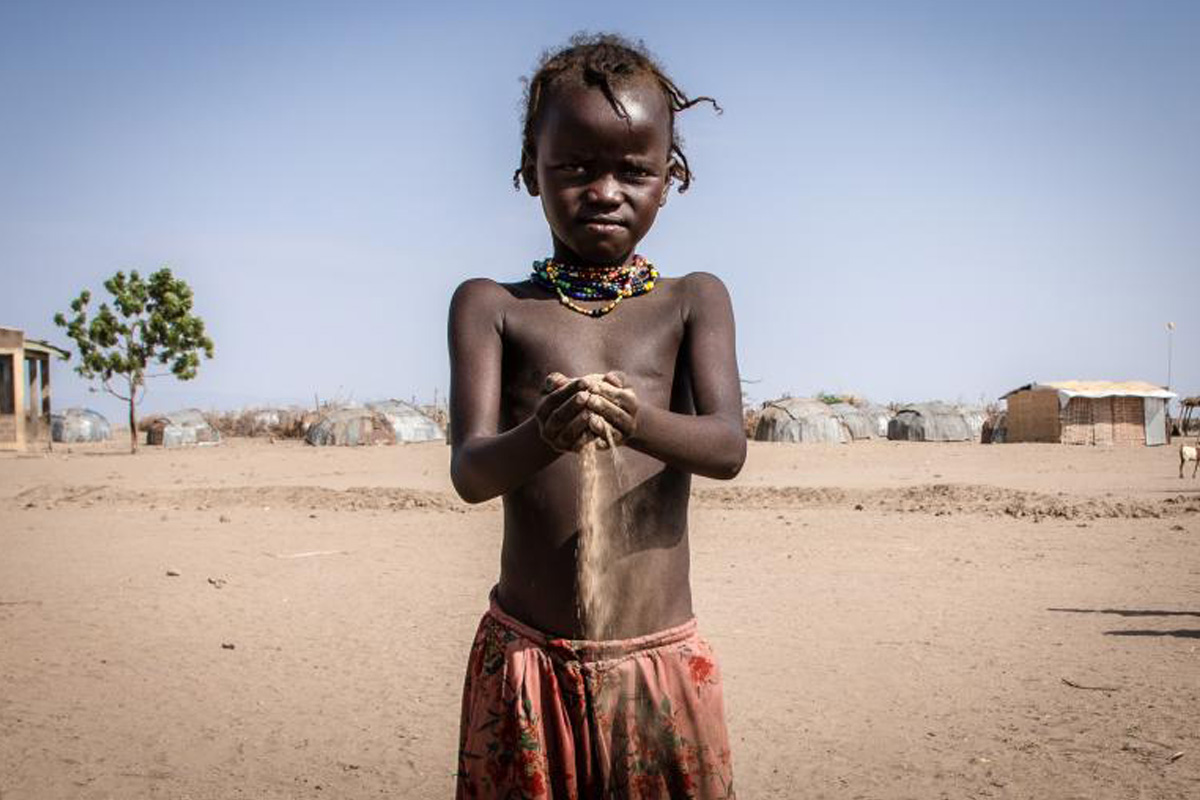Thousands of children have been killed and even more injured across the Gaza Strip, since the beginning of Israel’s offensive against Hamas. Children are still being held hostage. Their basic rights to life and health are being denied, day after day. The loss and trauma they are experiencing will be borne out for generations to come. Children bear no responsibility for war, but they suffer its deepest scars. And they pay the highest price. These are the voices of children in Gaza. To respond to the situation for children in Israel and the State of Palestine, UNICEF is calling for an immediate humanitarian ceasefire, the immediate, safe and unconditional release of all abducted children and the prevention and end to any grave violations against children, including killing and injuring.
UNICEF
The escalation of hostilities in the Gaza Strip has had a devastating impact on children and families. Children are dying at an alarming rate, more than 5,000 have reportedly been killed and thousands more injured, and it is estimated that more than 1.5 million people have been displaced. Those families are running out of water, food, fuel and medicines. Their homes have been destroyed; their families torn apart. To respond to the situation for children in Israel and the State of Palestine, UNICEF is calling for a humanitarian ceasefire and the immediate, safe and unconditional release of all abducted children and the prevention and end of any grave violations against children, including killing and injuring.
No matter where they live, every child has the right to grow up in a peaceful world on a safe and livable planet. Children must be listened to and included in all decisions that affect them. On this World Children’s Day (20 November), we’re making space for children and young people to raise their voices on issues that are important to them. By prioritizing children's rights and participation, we can help to build a brighter future for everyone. Join us! Explore what’s happening on World Children’s Day.
According to UNICEF estimates, almost 45 million children are affected by wasting – the most immediate, visible and life-threatening form of malnutrition. Children with wasting are too thin and their immune systems are weak, leaving them vulnerable to developmental delays, disease and death. The UN agency has been working to highlight the magnitude of the nutrition crisis and working with partners to reach children in the countries that are particularly affected. But sustained funding is needed to ensure that UNICEF can continue expanding this work, including through game-changing partnerships like the Child Nutrition Fund.
More than 3,500 children have been killed and over 6,800 injured in Gaza during the current Israel-Palestine crisis, according to the UN Children's Fund. UNICEF official Salim Oweis emphasized in an interview with UN News that beyond the numbers, those are lives, dreams and futures lost because of the ongoing crisis in the Gaza Strip. Oweis told UN News’s Abdelmonem Makki that it was the children who were “facing the worst of times” in the enclave and called again for an immediate humanitarian ceasefire.
In a volatile world, with more children in need than ever and resources increasingly stretched, UNICEF and its partners must have the right support. Global Humanitarian Thematic Funding is a highly flexible form of funding that allows donors to support the UN agency, as it responds rapidly and strategically to immediate needs in humanitarian crises. Thanks to the generous support from partners, Flexible Funding has already saved lives in six countries including Afghanistan, Haiti, Türkiye, Papua New Guinea, Pakistan, and South Sudan.
In every part of the world, poor mental health causes suffering for children and young people. It is a top cause of death, disease and disability, especially for older adolescents. To achieve positive mental health, UNICEF is calling for investment and action to support and protect all children and young people, and a focus on ending neglect, abuse and childhood traumas. Under the #OnMyMind campaign, the UN agency is asking for support for families through programs that promote positive parenting and ensure that all children and adolescents learn and interact in safe and secure environments with supportive relationships and access to mental health services.
On 8 September 2023, a powerful earthquake struck Morocco, claiming more than 2,800 lives and impacting more than 100,000 children according to initial reports. In any emergency, children are always among the most vulnerable. In close coordination with the authorities and UN partners, UNICEF is ready to support the humanitarian response as necessary to reach children and families affected with critical supplies and services. Longer-term, children and families affected will need shelter, safe drinking water, health and medical help, and food and nutrition support. Child protection services including psychosocial support will be critical in helping children and parents process their distressing experiences. Getting children back into school is also critical for their long-term recovery.
Children in 48 out of 49 African countries assessed are categorized as at high or extremely high risk of the impacts of climate change, says a UNICEF report, "Time to Act: African children in the climate change spotlight". Yet, only 2.4% of global climate funding targets children. Children living in the Central African Republic, Chad, Nigeria, Guinea, Somalia and Guinea-Bissau are the most at risk.
UNICEF and UNEP are working together on an increasing number of projects that demonstrate how communities across Africa can become more resilient as they adapt to the impacts of a changing climate. UNEP, UNICEF and ILO are working together with young people, governments, employers' and workers' organizations, and the private sector to design and implement the Green Jobs for Youth Pact.
It's healthy and important for teens to express their emotions. Dr. Lisa Damour, psychologist, mother and best-selling author shares three ways you can help them express themselves. Visit UNICEF Parenting for more expert tips.
UNICEF presents 14-year-old Djeneba's poem which reveals a vivid picture of a young boy struggling to survive because of conflict in Burkina Faso
Compared to adults, infants and children are uniquely affected by heat stress, leaving them more vulnerable to its short- and long-term effects. Pregnant women and fetuses are also vulnerable to the effects of extreme heat. UNICEF brings us some heat wave safety tips.
Baby Riazur, living in a Rohingya refugee camp in Cox's Bazar, Bangladesh, receives his routine vaccines from UNICEF-supported community health volunteers. More than 952,000 Rohingya, half of whom are children, are living in refugee camps in Cox’s Bazar after escaping violence that broke out in Myanmar in 2017. Rohingya families often miss routine vaccines - it is critical that children like Riazur receive them.

